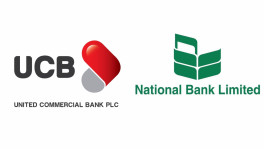Money whitening drops drastically as scope goes

The flow of undisclosed money into the mainstream economy has dropped drastically as the wholesale opportunity of whitening untaxed money ended in the current financial year.
According to the National Board of Revenue (NBR), the government has collected Tk95 crore in taxes by whitening black money from July to February of fiscal 2021-2022.
On the other hand, in the previous financial year, the NBR earned Tk1981 crore by allowing black money into the mainstream of the economy.
In other words, less than 5% of the money compared to the last financial year has come into the mainstream till February this year.
A senior NBR official told The Business Standard that the investment of the undisclosed money has come down this time as the opportunity to wholesale whitening of black money with the 10% tax was stopped.
Economists believe that there should be no special opportunity although the money whitening amount dropped. This, they think, discourages compliant taxpayers. Instead, they called for stopping the source of black money.
There was also an opportunity to whiten undisclosed money in fiscal years prior to 2020. In whitening undisclosed money, one would have to pay a further 10% penalty after paying tax at the applicable rate – from 10% to a maximum of 30% at that time.
Although the tax authority did not raise questions about the source of the money, other agencies had the opportunity to raise questions. As a result, people were less interested in whitening black money.
However, in 2020, Finance Minister AHM Mustafa Kamal offered the opportunity to whiten black money with a 10% tax as part of an effort to revive the economy that had been hit hard by the Covid-19 pandemic.
And by buying a certain amount of land depending on the area, they were given the opportunity to whiten money in return for a certain tax for investing in the real estate sector.
And the most important change that had been made was that not only the tax authority but also other agencies could not raise any questions about the source of the money. This means that the owner of illegal money received a chance to whiten black money without question.
Cashing in on the opportunity, the largest number of people whitened the highest amount of black money after independence in the aforementioned fiscal year.
However, the government's decision was much criticised. And the following year, the government scrapped the opportunity to whiten black money with a 10% tax. However, the authorities did not cancel the waiver of raising questions by any other organisation.
During the recent budget discussions, the country's capital market and housing sector entrepreneurs urged the NBR to keep the previous year's special opportunities in the next financial year as well.
In response, a senior NBR official said, "When NBR comes under criticism for providing such opportunity, the entrepreneurs don't stand by us."
Towfiqul Islam Khan, a senior research fellow at the Centre for Policy Dialogue, told TBS, "Black money is not morally justifiable, it is not economically reasonable and it discourages compliant taxpayers. That is why there should not be this opportunity."
Instead, fairness in tax collection should be ensured and the source of black money should be stopped, he added.


 Keep updated, follow The Business Standard's Google news channel
Keep updated, follow The Business Standard's Google news channel
















